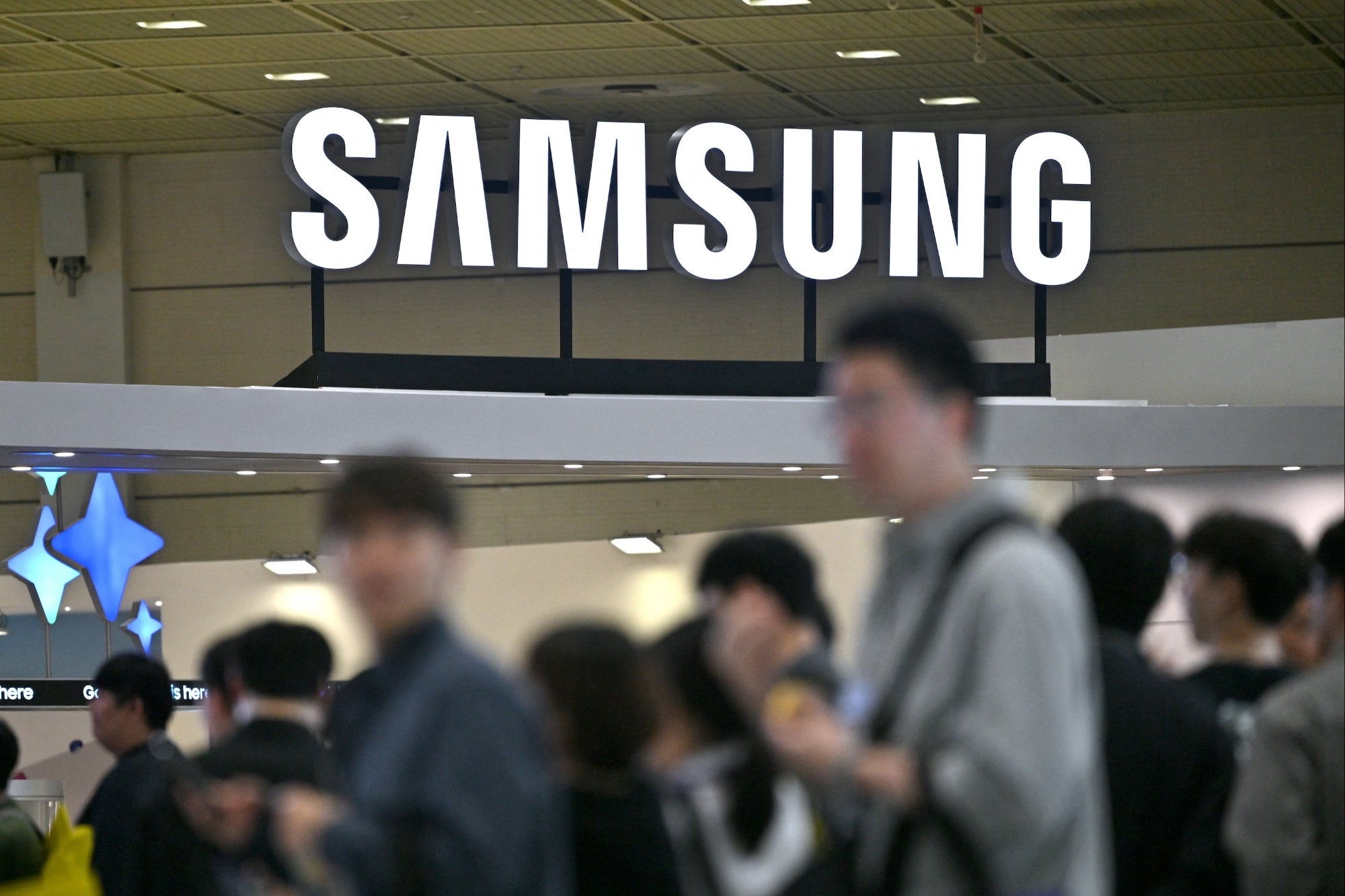AFFILIATE MARKETING
Get More Clicks To Your Links With This Facebook Page Strategy! | by Financial Advice | ILLUMINATION | Feb, 2023

Affiliate marketing can be a lucrative way to earn money online, but success in this field requires more than just posting affiliate links and hoping for the best. To truly succeed as an affiliate marketer, you need to build a strong, engaged community of followers who trust your recommendations and are eager to interact with your content.
That’s where engagement comes in. By fostering meaningful interactions with your audience, you can build a loyal following that is more likely to click on your affiliate links and make a purchase. In this article, we’ll discuss some strategies for increasing engagement on your Facebook page for affiliate marketing. These strategies include creating engaging content, building a community, encouraging interaction, partnering with other pages, and utilizing Facebook Insights. By implementing these tactics, you can boost engagement on your page and take your affiliate marketing efforts to the next level.
To effectively increase engagement on your Facebook page for affiliate marketing, it’s important to understand how the Facebook algorithm works. The algorithm determines what content shows up in users’ newsfeeds, and it prioritizes content that is likely to generate engagement. That means that the more engagement your content receives (in the form of likes, comments, shares, and reactions), the more likely it is to be seen by a larger audience.
With that in mind, here are some tips for increasing engagement on your page:
- Create shareable content: The more shareable your content is, the more likely it is to be seen by a larger audience. Shareable content typically includes visuals (such as photos and videos), interesting and informative captions, and content that is relevant to your audience.
- Post at optimal times: Knowing when your audience is most active on Facebook can help you optimize your posting schedule for maximum engagement. Experiment with posting at different times of day and track your engagement metrics to determine when your audience is most likely to engage with your content.
- Use Facebook Live: Facebook Live is a great way to engage with your audience in real time. Live videos tend to generate more engagement than pre-recorded videos, and they provide an opportunity for your audience to ask questions and interact with you directly.
- Respond to comments: Engaging with your audience by responding to comments shows that you value their input and can help to build a sense of community on your page.
- Use calls-to-action: Encouraging your audience to take action (such as liking, sharing, or commenting on your posts) can help to increase engagement and drive more traffic to your affiliate links.
By understanding the Facebook algorithm and implementing these tips, you can increase engagement on your Facebook page for affiliate marketing and reach a larger audience of potential customers.
To increase engagement on your Facebook page for affiliate marketing, you need to create content that resonates with your audience. Here are some tips for creating engaging content:
- Identify the needs and interests of your audience: To create content that your audience will engage with, you need to understand their needs and interests. Use Facebook Insights to gather data on your audience, such as their demographics and the types of content they engage with most frequently. You can also ask for feedback from your audience to learn more about their interests and preferences.
- Use visuals: Visuals tend to drive more engagement than text-only posts. Consider using photos, graphics, and videos to make your content more eye-catching and shareable.
- Use video: Video content tends to generate more engagement than other types of content on Facebook. Consider creating video tutorials, product demos, or behind-the-scenes content to engage your audience.
- Use polls and quizzes: Polls and quizzes can be a fun way to engage your audience and gather feedback on their preferences. Consider creating polls or quizzes related to your niche or products you promote.
- Use attention-grabbing headlines and captions: Your headline and caption are the first things that users see when they come across your post. Make sure they are attention-grabbing and clearly communicate the value of your content.
- Use humor and emotion: Posts that evoke emotion or humor tend to generate more engagement than those that are strictly informational. Consider incorporating humor or emotion into your content to increase engagement.
By creating content that is engaging, informative, and valuable to your audience, you can increase engagement on your Facebook page for affiliate marketing and build a loyal following of potential customers.
FREE >>>Affiliate marketing<<< course if you’re interested
Creating a sense of community on your Facebook page for affiliate marketing is key to building a loyal following of engaged users. Here are some strategies for fostering engagement and building a community on your page:
- Respond to comments: Responding to comments on your posts is a great way to show your audience that you value their input and appreciate their engagement. It also provides an opportunity to answer questions and address concerns that users may have.
- Ask questions: Asking questions in your posts can be a great way to start conversations and encourage engagement. Consider asking your audience for feedback on your products or industry-related topics.
- Leverage user-generated content: User-generated content (UGC) is content that is created by your audience. By leveraging UGC, you can encourage engagement and build a sense of community on your page. Consider running a UGC campaign, such as a photo contest or hashtag challenge, to encourage your audience to create and share content related to your brand or products.
- Share user-generated content: Sharing UGC on your page is a great way to show your audience that you value their contributions and to provide social proof of your products or services.
- Host events: Hosting events, such as Facebook Live sessions or webinars, can be a great way to engage your audience and provide value to your community.
By fostering engagement and building a sense of community on your Facebook page for affiliate marketing, you can build a loyal following of engaged users who are more likely to interact with your content, share your posts, and ultimately, make purchases through your affiliate links.
Encouraging interaction on your Facebook page for affiliate marketing is essential to building engagement and increasing your reach. Here are some techniques for encouraging interaction:
- Ask for likes, shares, and comments: Encouraging your audience to like, share, and comment on your posts is a simple but effective way to increase engagement. Consider adding a call-to-action at the end of your posts asking users to like, share, or comment.
- Host contests and giveaways: Contests and giveaways can be a great way to encourage engagement and reward your audience for their participation. Consider hosting a contest or giveaway related to your niche or the products you promote.
- Create challenges: Challenges can be a fun way to encourage your audience to engage with your content and build a sense of community on your page. Consider creating a challenge related to your niche or the products you promote.
- Use Facebook Messenger: Facebook Messenger can be a powerful tool for engaging with your audience on a more personal level. Consider using Messenger to answer questions, provide customer support, or send personalized messages to your audience.
- Use Facebook Groups: Facebook Groups can be a great way to build a community around your brand or products. Consider creating a Facebook Group related to your niche or products you promote, and encourage your audience to join and participate.
By encouraging interaction on your Facebook page for affiliate marketing, you can increase engagement, build a sense of community, and ultimately, drive more sales through your affiliate links.
Partnering with other pages in your niche on Facebook for affiliate marketing can provide many benefits, including increased exposure, new followers, and the opportunity to collaborate on content. Here are some tips for partnering with other pages:
- Find and approach potential partners: Look for pages in your niche that have a similar audience and reach. You can use Facebook’s search function or third-party tools to find potential partners. Once you have identified potential partners, reach out to them with a clear and concise pitch, explaining how the partnership can benefit both parties.
- Collaborate on content: Collaborating on content with other pages can be a great way to increase exposure and reach new audiences. Consider co-creating content, such as blog posts, videos, or social media posts, with your partners.
- Cross-promote each other’s content: Cross-promoting each other’s content on your respective pages can be a great way to introduce your audience to your partner’s page and vice versa. Consider sharing each other’s posts, tagging each other in posts, or running joint promotions.
- Host joint events: Hosting joint events, such as webinars or live streams, can be a great way to reach a larger audience and provide value to your followers.
- Monitor and analyze results: Monitor the results of your collaborations to determine what is working and what is not. Use Facebook’s Insights and third-party tools to track engagement, reach, and referral traffic.
By partnering with other pages in your niche on Facebook for affiliate marketing, you can increase exposure, reach new audiences, and ultimately, drive more sales through your affiliate links.
Facebook Insights is a powerful tool that provides valuable data about your page’s performance, including engagement metrics such as reach, engagement rate, and follower demographics. Here’s how to use Facebook Insights to improve engagement and refine your affiliate marketing strategy:
- Overview of Facebook Insights: Facebook Insights provides a comprehensive overview of your page’s performance, including post reach, engagement rate, follower demographics, and more. You can access Insights by clicking on the “Insights” tab at the top of your Facebook page.
- Tracking engagement metrics: Use Insights to track key engagement metrics, such as reach, engagement rate, and post-performance. These metrics can help you identify which types of content are resonating with your audience and adjust your strategy accordingly.
- Refining your strategy: Once you have identified which types of content are driving engagement, refine your strategy to focus on creating more of that type of content. Consider experimenting with different formats, such as videos or polls, to see what works best for your audience.
- Identifying your audience: Use Insights to learn more about your audience’s demographics, such as age, gender, location, and interests. This information can help you tailor your content to better meet their needs and interests.
- Adjusting posting frequency and timing: Insights can also help you determine the best times to post and how often to post. Use the “Posts” tab in Insights to see when your followers are most active and adjust your posting schedule accordingly.
By utilizing Facebook Insights, you can gain valuable insights into your audience’s behavior and preferences, allowing you to refine your affiliate marketing strategy and increase engagement on your page.
In summary, increasing engagement on your Facebook page is key to a successful affiliate marketing strategy. By understanding the Facebook algorithm, creating engaging content, building a community, encouraging interaction, partnering with other pages, and utilizing Facebook Insights, you can boost engagement and drive traffic to your affiliate links.
Remember, building a strong, engaged community takes time and consistency. Be patient and persistent in implementing these strategies, and don’t be afraid to experiment with different tactics to find what works best for your audience.
By putting these strategies into action, you can increase engagement, grow your Facebook page, and ultimately increase your affiliate marketing earnings. So, get started today and see the results for yourself!
FREE >>>Affiliate marketing<<< course if you’re interested
AFFILIATE MARKETING
AI Will Transform the Workplace. Here’s How HR Can Prepare for It.

Opinions expressed by Entrepreneur contributors are their own.
Our workplaces are about to undergo an unprecedented level of transformation, and HR will take center stage. Artificial intelligence will dramatically reshape HR in a way that goes beyond recruiting, hiring and talent management. Leadership teams at all levels need to embrace this change to transform and lead their organizations forward.
It’s the people, and not the technology, that makes AI initiatives a success. Intrapreneurs, in particular, are the driving force behind it. As I shared in Fearless Innovation, I noticed this when I was working on the innovation agenda for the Great Places to Work study — the most innovative companies were those that had a leadership team that was embracing intrapreneurship and were open to change.
HR is the beating heart of any organization, and as such, it needs to take center stage in both adopting and leading ethical and innovative AI transformation across the organization.
Related: How Artificial Intelligence Is Reinventing Human Resources
4 tectonic shifts AI will drive in HR
1. A new wave of massive reskilling
As AI becomes more prominent across business functions, the need for new skills will only grow. Forty percent of enterprise leaders believe that their workforce would need to reskill as a result of AI and machine learning. In fact, research shows almost a third of all hours worked in the U.S. could be automated by 2030.
All of us need to reskill to some extent to be relevant in the AI era. Not only would people need to re-train, but generative AI is introducing a whole host of professions that have been non-existent until recently, from AI ethicists to human-AI interaction designers. Some of these roles might sound futuristic, yet they are becoming increasingly relevant as technology advances.
2. The great restructure
As automation takes center stage across more business functions, there will be the inevitable need for organizations to restructure and rethink how they work. This transition will not only involve the integration of new technologies but also introduce a shift in the workforce dynamics. Intrapreneurs will need to identify gaps both in skills and operational processes and forge brand-new roles for themselves and those they manage. HR must play a key role in enabling a smooth and easy transition in this regard. The transition will not be smooth or easy, and it’s only HR that has the capability to make it impactful.
3. Arrival of “digital humans”
“Digital human” may sound like an oxymoron, but that’s the term that’s starting to appear in business and operational plans. More roles, regardless of industry, are becoming digitally enhanced where some form of AI assistance is embedded in their everyday work. A real-life example is the introduction of the digital nurse — AI-powered healthcare agents which have already been proven to outperform human nurses in certain tasks.
Imagine the impact these digital roles will have on the workforce the more sophisticated and prevalent they become. Eventually, HR will need to create policies and systems in place that account for this new type of “staff augmentation.”
4. Regulating the robot
The threat of AI bias and misuse is serious. Not only can the technology put many jobs at peril, but potential improper implementation can expose organizations to serious liability and negatively affect the workforce. From avoiding bias to inclusivity, HR teams play a critical role in the ethical deployment and management of AI technologies.
HR professionals will be tasked with navigating the delicate balance between leveraging AI for efficiency and ensuring that its application upholds fairness, privacy and non-discrimination.
What HR intrapreneurs must do to embrace AI the right way
The future of work is being shaped by AI adoption, and its success hinges on the right approach from the outset. My experience shows that for successful organizations, one universal trait stands out: the presence of change agents. Every organization, regardless of size, benefits from intrapreneurs who are open to change and committed to spearheading transformation efforts. These intrapreneurs are pivotal in driving the future of work, as they help orchestrate the integration of new technologies into their business models.
HR and talent leaders should harness this dynamic, encouraging a symbiotic relationship with intrapreneurs to develop customized solutions for AI adoption, ensuring that they are not just keeping pace with technological advances but are actively shaping their trajectory.
Securing a seat at the table:
HR should take a proactive stance in the adoption of AI, even if it is still in its early stages within your organization. By securing a position at the forefront of the AI initiative, HR can and should facilitate and guide the entire organization in embracing this significant change.
As AI has the potential to impact every facet of the organization, it is imperative for HR to not only understand and advocate for this technology but also lead its integration across all departments. HR should encourage and support intrapreneurs and all employees to leverage AI in their daily tasks, demonstrating its value not just for operational efficiency but for personal and professional growth as well.
Master the technology:
To effectively navigate and regulate AI, HR must first understand it thoroughly. Grasping the full potential of this technology is crucial for reaping its extensive benefits. HR plays a vital role in identifying the necessary tools and skills that employees must acquire and then integrating these learnings into daily work practices.
Before implementing AI more broadly, HR should initiate comprehensive training programs that not only educate but also reassure employees about AI’s role in the future of the business. By leading these educational initiatives, HR can shape the structure and effectiveness of these programs, ensuring they meet the needs of the organization and its workforce.
Related: 3 Ways to Prepare Your Business For an AI Future
Looking ahead
Generative AI has the transformative potential to redefine the business landscape, but realizing this vast potential hinges on more than just the adoption of technology. It critically depends on the talent within the workforce, driven by HR and bold intrapreneurs. These visionary leaders don’t just implement new tools; they exemplify their use, demonstrating the profound impact of AI across every level of the organization.
HR plays a pivotal role in fostering this environment, enabling intrapreneurs to guide and inspire every individual they touch. Together, they turn each employee into a catalyst for change, igniting a widespread passion for innovation that deeply resonates and sustains long-term success.
AFFILIATE MARKETING
Samsung: 6-Day Workweek For Execs, Company in Emergency Mode

Four-day workweeks might have all the buzz, but one major tech company is going in the opposite direction.
Samsung is implementing a six-day workweek for all executives after some of the firm’s core businesses delivered lower-than-expected financial results last year.
A Samsung Group executive told a Korean news outlet that “considering that performance of our major units, including Samsung Electronics Co., fell short of expectations in 2023, we are introducing the six-day work week for executives to inject a sense of crisis and make all-out efforts to overcome this crisis.”
Lower performance combined with other economic uncertainties like high borrowing costs have pushed the South Korean company to enter “emergency mode,” per The Korea Economic Daily.
Related: Apple Is No Longer the Top Phonemaker in the World as AI Pressure and Competition Intensifies
Executives at all Samsung Group divisions will be affected, including those in sales and manufacturing, according to the report.
Samsung had its worst financial year in over a decade in 2023, with the Wall Street Journal reporting that net profit fell 73% in Q4. It also lost its top spot on the global smartphone market to Apple in the same quarter, though it reclaimed it this year.
Though employees below the executive level aren’t yet mandated to clock in on weekends, some might follow the unwritten example of their bosses. After all, The Korea Economic Daily reports that executives across some Samsung divisions have been voluntarily working six days a week since January, before the company decided to implement the six-day workweek policy.
Entrepreneur has reached out to Samsung’s U.S. newsroom to ask if this news includes executives situated globally, including in the U.S., or if it only affects employees in Korea. Samsung did not immediately respond.
Research on the relationship between hours worked and output shows that working more does not necessarily increase productivity.
A Stanford project, for example, found that overwork leads to decreased total output. Average productivity decreases due to stress, sleep deprivation, and other factors “to the extent that the additional hours [worked] provide no benefit (and, in fact, are detrimental),” the study said.
Related: Samsung’s Newest Galaxy Gadget Aims ‘To See How Productive You Can Be’
Longer hours can also mean long-term health effects. The World Health Organization found that working more than 55 hours a week decreases life expectancy and increases the risk of stroke by 35%.
The same 55-hour workweek leads to a 17% higher risk of heart disease, per the same study.
AFFILIATE MARKETING
John Deere Hiring CTO ‘Chief Tractor Officer,’ TikTok Creator

This article originally appeared on Business Insider.
Agriculture equipment company John Deere is on the hunt for a different kind of CTO.
The brand on Tuesday announced a two-week search to find a “Chief Tractor Officer” who would create social media content to reach younger consumers.
One winning applicant will receive up to $192,300 to traverse the country over the next several months showcasing the way John Deere products are used by workers, from Yellowstone National Park to Chicago’s Wrigley Field and beyond.
“No matter what you do — whether it’s your coffee, getting dressed in the morning, driving to work, the building you go into — it’s all been touched by a construction worker, a farmer, or a lawn care maintenance group,” Jen Hartmann, John Deere’s global director of strategic public relations, told AdAge.
To kick off the search, John Deere tapped NFL quarterback Brock Purdy (who will presumably be a bit busy this Fall to take the job himself) to star in a clip in which he attempts to set out on a road trip in an industrial tractor.
Suited up in the obligatory vest, work boots, and John Deere hat, Purdy’s progress is interrupted by teammate Colton McKivitz hopping into the cab while a string of messages floods in from other athletes and influencers expressing interest in the job.
The clip also represents the first time that the 187-year-old company has used celebrities to promote itself, Hartmann told AdAge.
According to the contest rules, entrants have until April 29 at midnight to submit a single 60-second video making their pitch for why they should be the face and voice of the company.
In addition, entrants must live in the 48 contiguous states or DC — sorry Hawaii and Alaska residents. Interestingly, any AI-generated submissions are prohibited, too.
Videos will be judged against four categories — originally, creativity, quality, and brand knowledge — after which five finalists will be chosen and notified after May 17.
-

 SEARCHENGINES6 days ago
SEARCHENGINES6 days agoGoogle Core Update Volatility, Helpful Content Update Gone, Dangerous Google Search Results & Google Ads Confusion
-

 SEO6 days ago
SEO6 days ago10 Paid Search & PPC Planning Best Practices
-

 MARKETING7 days ago
MARKETING7 days ago2 Ways to Take Back the Power in Your Business: Part 2
-

 MARKETING5 days ago
MARKETING5 days ago5 Psychological Tactics to Write Better Emails
-

 SEARCHENGINES5 days ago
SEARCHENGINES5 days agoWeekend Google Core Ranking Volatility
-

 MARKETING6 days ago
MARKETING6 days agoThe power of program management in martech
-

 PPC7 days ago
PPC7 days agoCritical Display Error in Brand Safety Metrics On Twitter/X Corrected
-
SEARCHENGINES4 days ago
Daily Search Forum Recap: April 15, 2024















You must be logged in to post a comment Login